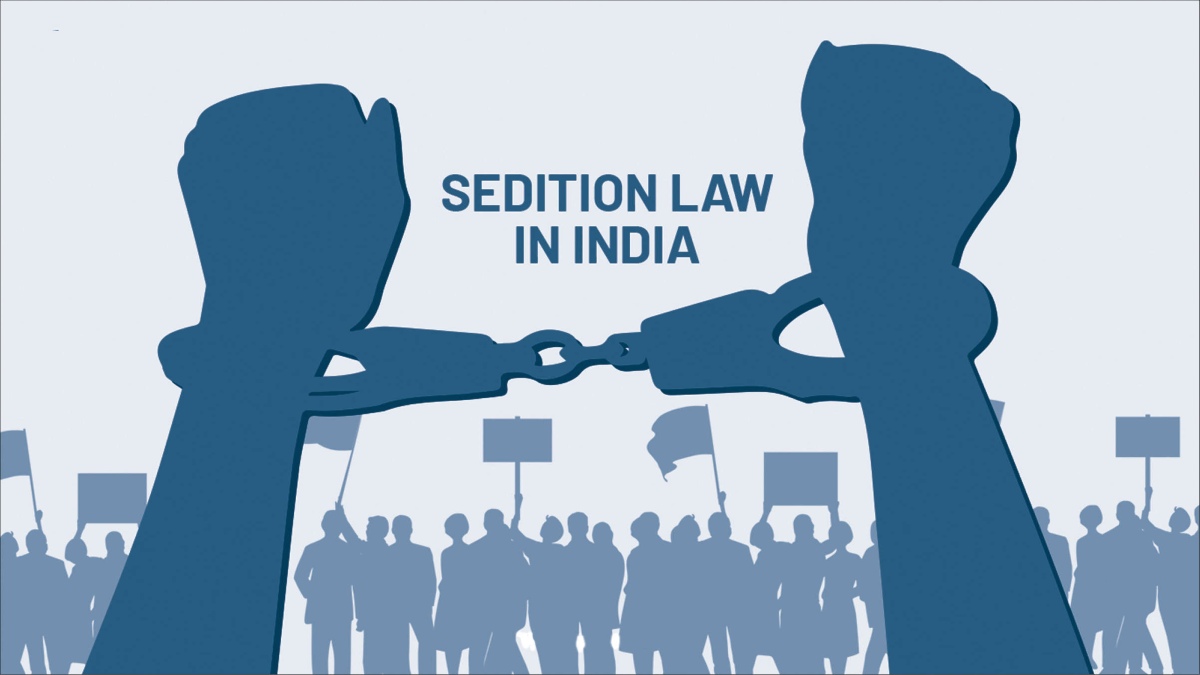
Announcing a complete revamp of the nation’s criminal legislation, Amit Shah, the Union Home Minister, has presented three fresh Bills aimed at replacing outdated “19th Century Laws.” Shah has proposed the Bharatiya Sanhita Suraksha Bill, 2023 in the Lok Sabha, intended to substitute the Indian Penal Code, Code of Criminal Procedure, and Indian Evidence Act. These legislations have been referred to a standing committee for review.

Amit Shah emphasized that the criminal justice system in the country has been operating based on British-established laws from 1860 to 2023. These three new laws are expected to bring about a significant transformation in the nation’s criminal justice system, he noted.
Notably, Shah mentioned the repeal of the sedition law. However, upon closer examination, it becomes apparent that the crucial provision has merely been introduced under a different name, with a broader interpretation of the offense.
The proposed Bill includes various changes, one of which involves redefining Section 124A of the Indian Penal Code that currently defines sedition as an act that endangers the sovereignty, unity, and integrity of India.
Section 150 of The Bharatiya Nyaya Sanhita Bill, 2023 addresses the offense of sedition, although it refrains from explicitly using the term “sedition.” Instead, it characterizes the offense as “jeopardizing the sovereignty, unity, and integrity of India.”
The section states: “Any individual who intentionally or knowingly, through spoken or written words, gestures, visible representations, electronic communication, financial means, or any other method, stirs up or attempts to incite secession, armed rebellion, subversive activities, or promotes feelings of separatism, thereby endangering the sovereignty, unity, or integrity of India, or engages in such actions, will face either life imprisonment or imprisonment of up to seven years, in addition to fines.”
“Expressions of disapproval towards government actions, aimed at bringing about their legal alteration without inciting or attempting to incite the activities mentioned in this section, are encompassed by these comments.”
“The new regulation expands its scope to encompass providing financial support and engaging in ‘subversive activities,’ as well as promoting ‘sentiments of separatist actions.'”
“This broader interpretation goes beyond the recommendations made by the 22nd Law Commission in June. The Commission’s proposal was to enhance the provision by introducing procedural safeguards and increasing the duration of imprisonment. The Commission suggested including the phrase ‘with a tendency to incite violence or create public disorder.’
The report also defined ‘tendency to incite violence’ as a ‘mere inclination to provoke violence or cause public disorder,’ rather than requiring proof of actual violence or an immediate threat of violence.”
Freedom of speech and expression is a cornerstone of any democratic society, allowing individuals to voice their opinions, criticisms, and concerns without fear of retribution. However, this freedom is not absolute and must be balanced with the need to maintain national security and public order. In India, the sedition law has been a topic of both debate and controversy, as it navigates the fine line between protecting citizens’ right to speak out and preventing actions that might threaten the integrity of the nation.
Sedition can be broadly defined as any act that incites violence, rebellion, or resistance against the established government or its institutions. In India, Section 124A of the Indian Penal Code (IPC) addresses the offense of sedition.
It states that anyone who by words, spoken or written, or by signs, or by visible representation, or otherwise, brings or attempts to bring into hatred or contempt, or excites or attempts to excite disaffection towards the government established by law in India shall be punished with imprisonment for life, to which fine may be added, or with imprisonment which may extend to three years, to which fine may be added, or with fine.

The sedition law in India traces its origins to the colonial era when the British colonial authorities used it to suppress dissent and freedom fighters seeking independence. The law was aimed at stifling any criticism of the British regime and was a tool for curbing nationalist movements. After gaining independence in 1947, India chose to retain this law, ostensibly to prevent activities that could pose a threat to the newly established democratic order.
Over the years, the sedition law has come under significant criticism from various quarters. Critics argue that the law is vague and its interpretation subjective, which can lead to its misuse against individuals exercising their legitimate right to dissent. There have been instances where activists, journalists, and individuals expressing critical opinions against the government have been charged with sedition, often leading to a chilling effect on free speech.
One of the key concerns is the potential misuse of the law for political purposes. Accusations of sedition against government critics can have a stifling effect on public discourse and discourage citizens from expressing their opinions openly. Moreover, the law’s penalties, including imprisonment, can be disproportionately harsh for the offense it seeks to address.
Balancing the need to protect national security and public order with the fundamental right to free speech is a complex task. In recent times, several calls have been made to either amend or repeal the sedition law. Critics advocate for a more precise definition of sedition, emphasizing incitement to violence or direct threats to the state rather than merely expressing dissatisfaction with the government’s policies.
It’s important to note that safeguarding national security is a legitimate concern for any country. However, laws that curb free speech must be narrowly tailored and should not be misused to quash dissent or suppress opposing viewpoints. Striking a balance requires a robust judicial system that can objectively assess each case and determine whether the threshold for sedition has been crossed.
The sedition law in India represents a complex intersection of individual rights, national security, and the state’s authority. While the need to maintain law and order is crucial, it is equally important to ensure that the law is not used as a tool to stifle legitimate dissent and free speech.
As the country progresses, there is a growing consensus that any law concerning sedition should be reviewed, clarified, and potentially amended to align with democratic principles and ensure that the balance between safeguarding national interests and protecting citizens’ rights remains intact. Ultimately, a robust democratic society is one that can accommodate diverse opinions without compromising its integrity.
Chipko Movement in India 1973, Leader, State, Comprehensive Study
SAARC Countries 2023, List, Names, Map, Members, Comprehensive Study

<div class="new-fform">
</div>